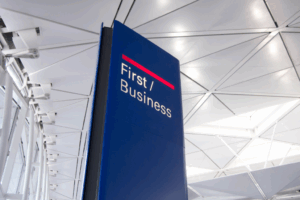In the modern workplace, business travel is no longer a simple back-office task. It has grown into a strategic function that directly supports growth, client relationships and operational efficiency.
Behind the scenes, corporate travel managers are the ones making sure this complex world runs smoothly. Their work touches everything from budgets and safety to sustainability and staff morale.
From Administrators to Strategic Partners
In the past, travel managers were often treated as booking clerks. Their main responsibility was to secure flights and hotel rooms, then hand over an itinerary. Today, the role is much broader.
Travel managers now act as strategic partners who align travel programmes with a company’s financial and cultural goals.
Instead of only processing requests, they collaborate with finance and HR teams, seeing that travel policies reduce costs while also supporting employee well-being. They are involved in setting strategies, managing supplier contracts and even shaping discussions about sustainability.
Keeping Costs in Check
Travel is one of the biggest controllable expenses in most companies. Without proper oversight, it can drain budgets quickly. Travel managers negotiate with airlines and hotels, secure preferred supplier deals, and identify opportunities to consolidate bookings.
They also track spending data and uncover hidden costs. For instance, they might flag when employees book outside approved platforms or when unused tickets remain unclaimed.
By managing these details, they save the business money while making sure employees still have access to the right resources.
Improving the Traveller Experience
Saving money is important, but the traveller experience matters just as much. Employees who spend time on the road want convenience, clarity and support. If a travel policy is too rigid or if booking tools are difficult to use, frustration sets in and productivity drops.
Travel managers bridge this gap by designing programmes that balance company interests with employee needs. They listen to feedback, adjust hotel lists if they’re inconvenient and make sure booking platforms are intuitive.
A well-supported employee travels with less stress and performs better when they reach their destination.
Safety and Duty of Care
Another critical part of the role involves protecting travellers. Companies are legally and ethically responsible for employee safety during work trips. This duty of care includes monitoring risks, keeping staff informed about disruptions and offering emergency support when needed.
Travel managers use technology to track where employees are at any given time. If a natural disaster, strike or political event unfolds, they can respond quickly by rerouting travellers or arranging assistance. This level of care builds trust and shows employees they are valued beyond their output.
Driving Sustainable Practices
With sustainability now central to many corporate strategies, travel managers are under pressure to reduce the environmental impact of business trips. They work to introduce greener policies such as choosing direct flights, encouraging train travel for shorter journeys or partnering with eco-conscious hotels.
They also provide clear reporting on emissions linked to company travel. This transparency helps businesses demonstrate progress toward corporate responsibility goals and strengthens their reputation with clients and investors.
Technology as a Backbone
Modern corporate travel management relies heavily on technology. Travel managers oversee booking platforms, expense tracking systems and mobile apps that allow travellers to access itineraries and get support in real time.
By integrating these systems with finance and HR platforms, managers ensure data flows seamlessly across departments. This makes it easier to enforce policy compliance, streamline reimbursements and generate accurate reports.
For employees, the benefits are equally clear: travelling becomes less stressful when everything is available in one place.
Insights Through Data
Beyond technology itself, the insights generated from data are invaluable. Travel managers review booking trends, cost fluctuations and satisfaction surveys to spot opportunities for improvement.
If a large number of employees frequently travel to the same destination, managers might secure a special hotel rate. If analysis shows that travellers are unhappy with certain airlines, managers can renegotiate or update policy guidelines. In this way, data becomes a tool for smarter decisions.
Supporting Growth and Performance
Business travel serves the larger aim of driving company growth. Sales teams close deals face-to-face, executives build partnerships abroad, and project teams collaborate on-site. Travel managers make sure these goals can be met without unnecessary disruption.
By streamlining processes, they free up employees to focus on their purpose rather than the logistics. Their influence ensures that travel programmes deliver a return on investment and directly support organisational ambitions.
Keeping the Human Touch
Amid all the systems and strategies, the human element remains central. Travel managers are often the ones employees turn to when a flight is cancelled or when a hotel booking falls through.
Their ability to respond quickly and reassure travellers matters just as much as the data they provide.
This personal support builds loyalty and shows that the business genuinely cares about its people. In many cases, the relationships travel managers build across the company become just as important as the policies they design.
The role of the corporate travel manager is only becoming more complex. As global business evolves, these professionals will be central in balancing virtual and in-person collaboration, integrating artificial intelligence into predictive tools and strengthening sustainability strategies.
They will also play a greater part in employee well-being so that travel does not become a source of burnout.
Conclusion
Corporate travel managers have moved far beyond being administrative coordinators. They are strategists, negotiators, risk managers, and trusted advisers. Their work sees that travel budgets are used wisely, employees feel supported, and businesses stay resilient in a world of constant change.
In short, the modern corporate travel manager is the background force that keeps companies moving forward.





